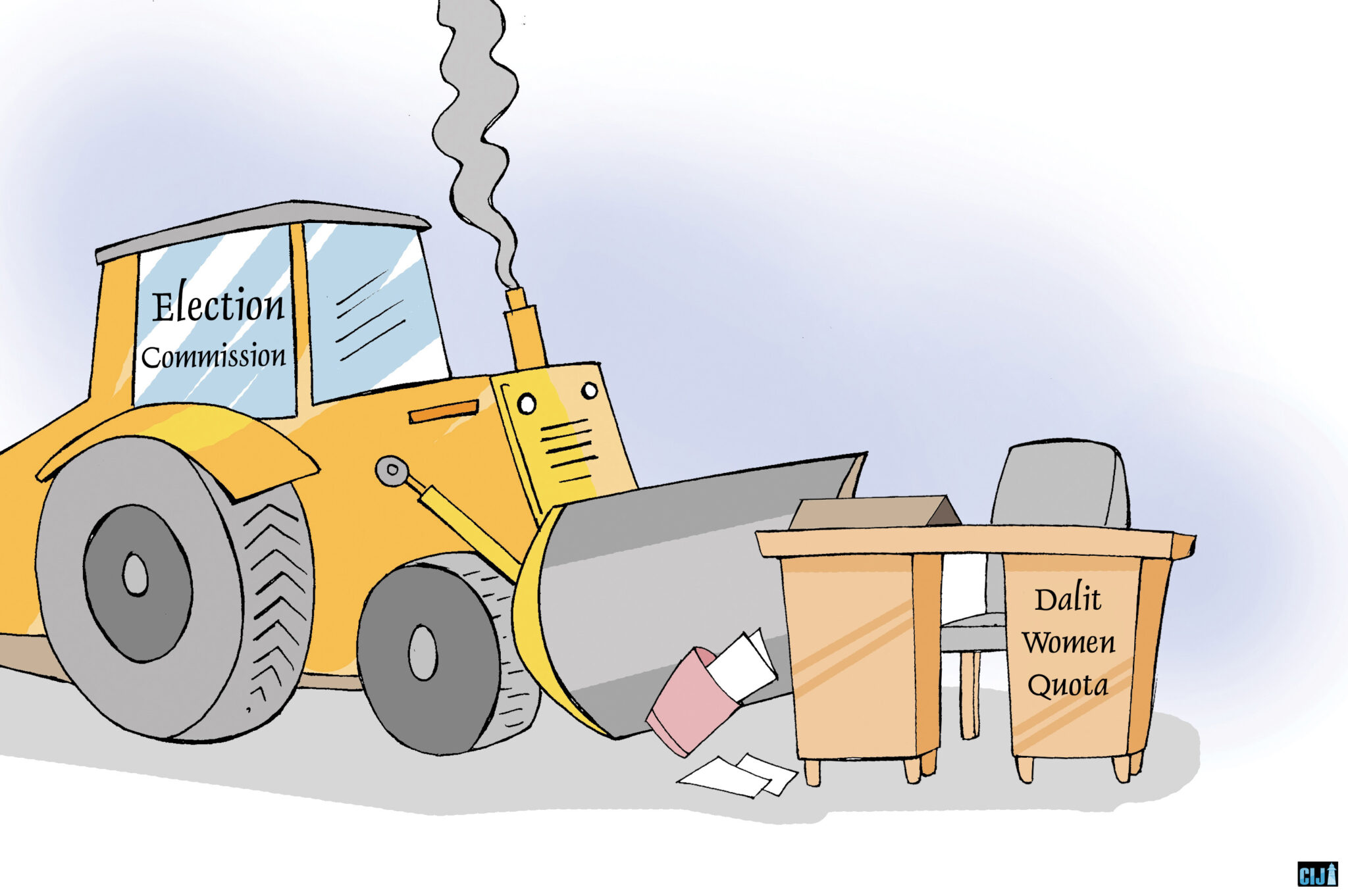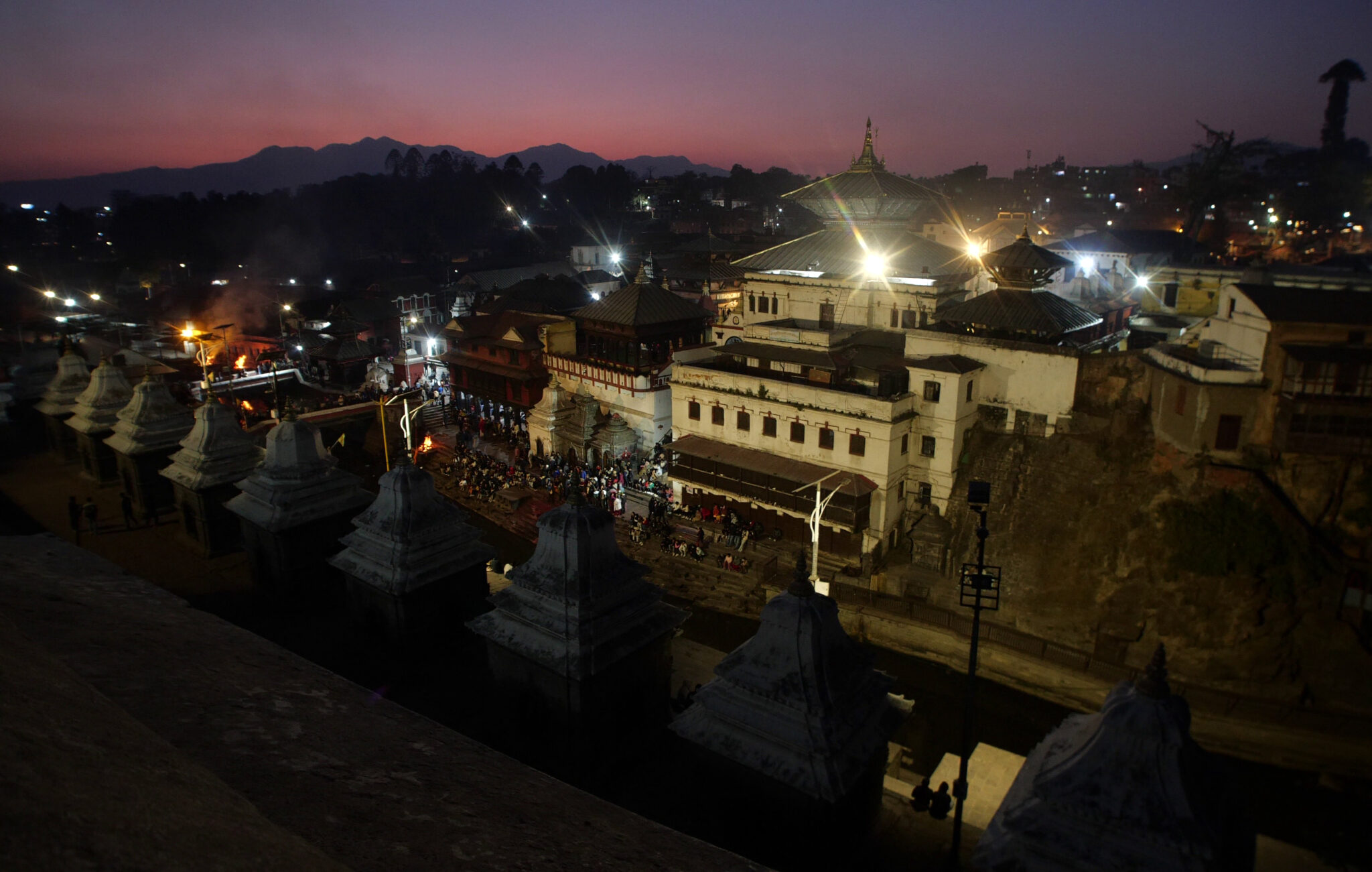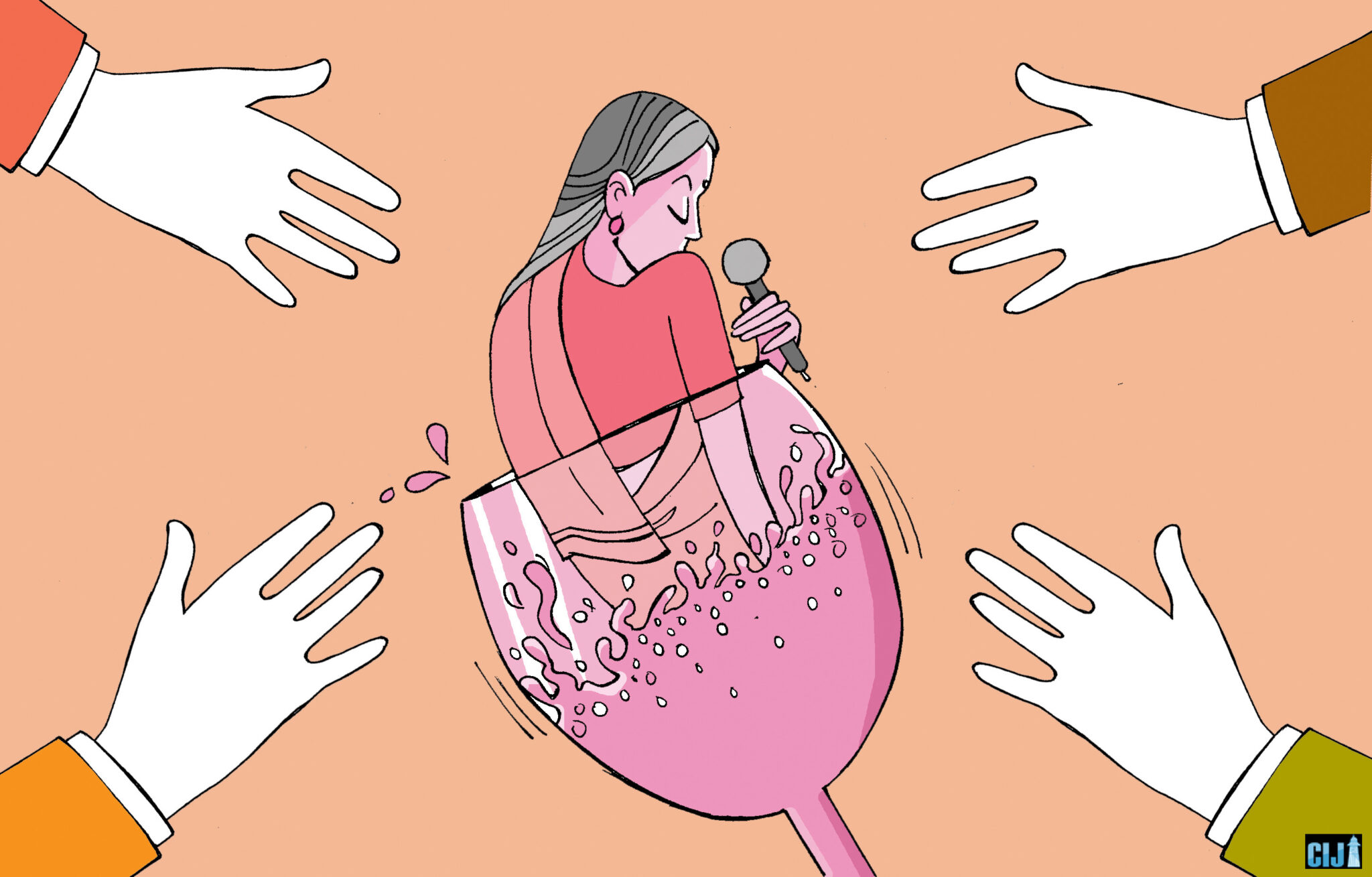As much of the country continues to struggle, Nepalgunj Submetropolitan City has shown how to conduct treatment and management of patients effectively.
Krishna Adhikari, | CIJ, Nepal
As the transmission of Covid-19 escalated, many patients with severe symptoms had ended up dying due to the lack of intensive care units and ventilators. And with health workers getting wary of attending to patients, the situation became pretty dire. However, Nepalgunj Submetropolitan City dealt with the problem differently.
The first case of Covid-19 transmission in Banke district was reported on 19 Baisakh. The patient was admitted to the isolation centre in Khajura. The patient received efficient treatment and was discharged in a few days.
After the first Covid-19 patient was reported, local representatives lobbied to turn Cancer Hospital in Khajura into a Covid-19 specialty hospital. Although the patients had been receiving good care and treatment, the hospital, with just 40 beds, could not bear the caseload. Thereafter, the provincial government decided to operate a Covid-19 ward in Bheri District Hospital.
“It was impossible to gather the budget, human resources and other resources just based on the government’/s decision. So we collected Rs10 million from the District Coordination Committee and the local level and created a Covid-19 ward,” said Nepalgunj Submetropolitan City mayor Dr Dhaval Shumsher Rana.
Lumbini Province Government provided the 72-bed Covid-19 ward, which came into operation on September 10, 2020, with doctors, health workers, equipment and additional budget. As the 72 beds fell short again, local representatives collected more funds.
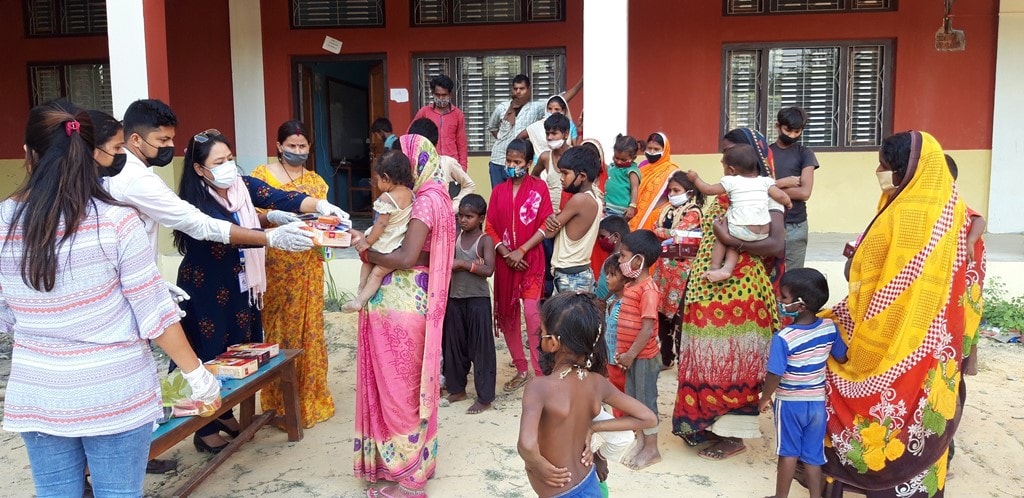
Local representatives distributing relief material to a deprived family.
Thereafter, they conducted an all-party, all-stakeholders meeting and formed a committee to add a 90-ward Covid-19 ward. This helped immensely in the treatment of patients. With a total of 162 beds with beds, ventilators and plasma therapy facilities, Bheri Hospital was able to provide optimum care to patients.
According to Uma Thapamagar, deputy mayor of Nepalgunj Municipality, the local levels of Banke district tried their best to facilitate the treatment of Covid-19 patients locally, and that it was only when their capacities exceeded that they looked for help from provincial and federal governments. “Patients from various places, from Kapilvastu to Mahendranagar, were able to receive treatment at Bheri Hospital as we had managed a reliable team of doctors and health workers along with adequate beds.”
Thapamagar said she was herself involved in the management of patients. A total of 131 people, including Ram Bahadur Chand, the Health Department chief at the sub-metropolitan city, were deployed in Nepalgunj. Eighty staff members, including Thapamagar and Chand, were infected with the virus as they were involved in the management of patients.
Not only that, Yubaraj Ghale, a staff member of the sub-metropolitan city’s Jinsi Department (Goods Department), and Shanti Pariyar, a woman member of Ward-2, succumbed to Covid-19. Similarly, Dan Bahadur Bista, education officer of the sub-metropolitan city, succumbed to the virus.
According to Tej Oli, Covid-19 focal person for Banke district, Nepalgunj Submetropolitan City saw a total of 2,424 people infected by Covid-19 and 2,360 patients discharged as of January 28, 2021. A total of 29 Covid-19 patients succumbed to the virus.
Bheri Hospital chief Dr Prakash Thapa said the hospital had been able to identify and treat Covid-19 patients effectively due to the continuous support of local representatives and the administration. A total of 90 doctors, health workers and staff members of the hospital were infected by the virus.
After they recovered from the infection, Dr Thapa, deputy mayor Thapamagar and various other individuals donated plasma. This has helped 98 critically ill patients receive plasma therapy in Nepalgunj, and the Red Cross Blood Centre has a stock of plasma for emergency use.
Khagendra Dahal, a local journalist who spent 14 days at Bheri Hospital after he got infected twice, said, “Patients like me got a new lease of life due to the efficient management of the patients. It is a great relief for patients to be able to receive such facilities at a government hospital.”
Bheri Hospital purchased seven ventilators for the treatment of Covid-19 patients. As the flow of patients increased, the federal government provided the hospital with 10 ventilators while the provincial government provided it with two ventilators. Care Nepal provided it with one ventilator and other health equipment.
According to Ram Bahadur Kurumwang, chief district officer of Banke district who recovered from Covid-19, “The Covid-19 situation in Banke district was managed effectively due to the coordination between local representatives and Bheri Hospital doctors and staff.”
Local Government Springs Up in Action
After assessing the risk of Covid-19, Nepalgunj Submetropolitan City established a health desk at the Jamunaha border point on February 2, 2021, and begun conducting health checkups of those entering Nepal. Three weeks later, almost 10,000 people began to enter Nepal, which worsened the situation.
The sub-metropolitan city then began health checkups in two shifts. Of the almost 3 lakh people whose temperature checked, the sub-metropolitan city sent 15 people to the Bheri Hospital in ambulances.
On March 16. 2020, deputy mayor Uma Thapamagar helped conduct a multi-party, multi-stakeholder meeting which formed district-level Covid-19 transmission management and security coordination committee. The committee decided to establish a fund for the management of Covid-19 control. The committee also started a toll-free hotline. A 40-bed Covid-19 isolation ward was also set up at Lions Dental Hospital in Nepalgunj in the initiative of Thapamagar and local entrepreneurs.
When the nation-wide lockdown to control Covid-19 began, the sub-metropolitan city rescued people who had been stranded near the border. It put them in quarantines and sent them to their respective homes after conducting health checkups. It had set up a quarantine centre for 200 people on March 22, 2020, at Mahendra Multiple Campus.
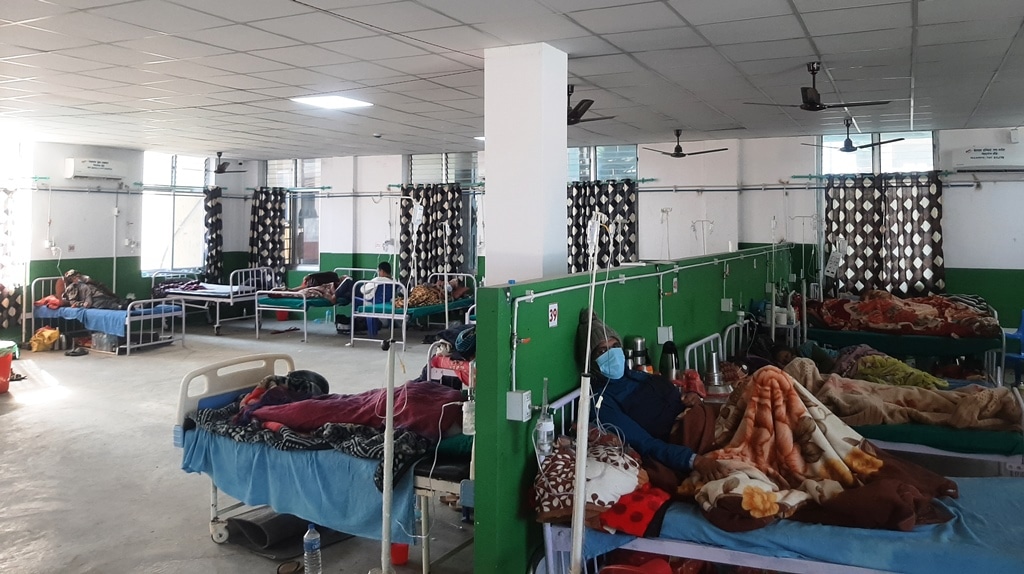
The coronavirus ward established by the local authorities in Banke. Photos: Krishna Adhikari
As the number of people entering Nepal from India increased, the number of Covid-19 infected patients increased too. However, there was no Covid-19 testing lab in Nepalgunj. It would take as long as a week for the results to come in. Local-level representatives requested federal and provincial governments to help establish a polymerase chain reaction (PCR) lab at Bheri Hospital. Accordingly, with the support of Lumbini Province government, Bheri Hospital operated a PCR testing lab on April 19, 2020. As of mid-January, 2021, the PCR lab at Bheri Hospital had tested 52,724 samples, out of which 5,263 were positive.
Nepalgunj city is full of religious and social diversity, which also makes it a sensitive place. When a 60-year-old man from Ward-8 of the sub-metropolitan city tested positive for Covid-19 on May 1, 2020, a total of 23 people, including 10 men and 13 women, tested positive during contact tracing. The fact that 23 people belonging to the Muslim community tested positive became a rallying point for those willing to give the Covid-19 situation a communal angle.
Having been targeted for their religious identity, some of the Muslims who had come under contact tracing refused to give swabs for the Covid-19 PCR test. The mayor, deputy mayor and several ward chairpersons intervened, and religious leaders from both Hindu and Muslim communities appealed to the people to give swabs for tests. It was only then that the situation returned to normal.
The federal government had given local levels the responsibility to manage quarantine centres and conduct awareness campaigns. However, local levels in Banke, including Nepalgunj Submetropolitan City, went out of their way to take up various other responsibilities including management of transmission cases, operation of isolation centres and Covid-19 wards, and health checkups at border points. Once a large number of patients were found Narainapur Rural Municipality near the border, the sub-metropolitan city turned the Agriculture Training Centre in Janaki Rural Municipality into an isolation centre.
The management of Covid-19 patients became pretty efficient after the Agriculture Training Centre of Kohalpur Municipality, and the Agriculture Training Centre and the Open Jail of Janaki Rural Municipality with managerial support from the sub-metropolitan city. Ambulances were managed to ensure that patients could be sent to hospitals round the clock whenever there was an emergency.
When the federal government announced that the Covid-19 patients would have to bear their treatment costs after the number of patients accelerated, the patients had found themselves in trouble. However, Bheri Hospital’s Covid-19 ward is free for patients. The Lumbini Province government has taken the responsibility of paying for the treatment of Covid-19 patients for free.
Bheri Hospital has started a scheme of providing patients and caretakers meals at the rate of 20 rupees per meal within its premises. The sub-metropolitan city has been providing Rs50,000 to Sundarkanda Mitra Mandal, the charity organization that started this scheme at the hospital. The scheme has helped feed around 200-250 poor patients and their caretakers daily, said Vijay Gupta, a social worker. Besides, the sub-metropolitan city has helped labourers who had lost their jobs due to Covid-19 by giving them work including cleaning lakes, tree planting, road cleaning and others.
The eight local levels of Banke had by mid-July spent Rs180.76 million towards Covid-19 control. However, the facilities that the Covid-19 patients received trump the money spent, said Gupta.

